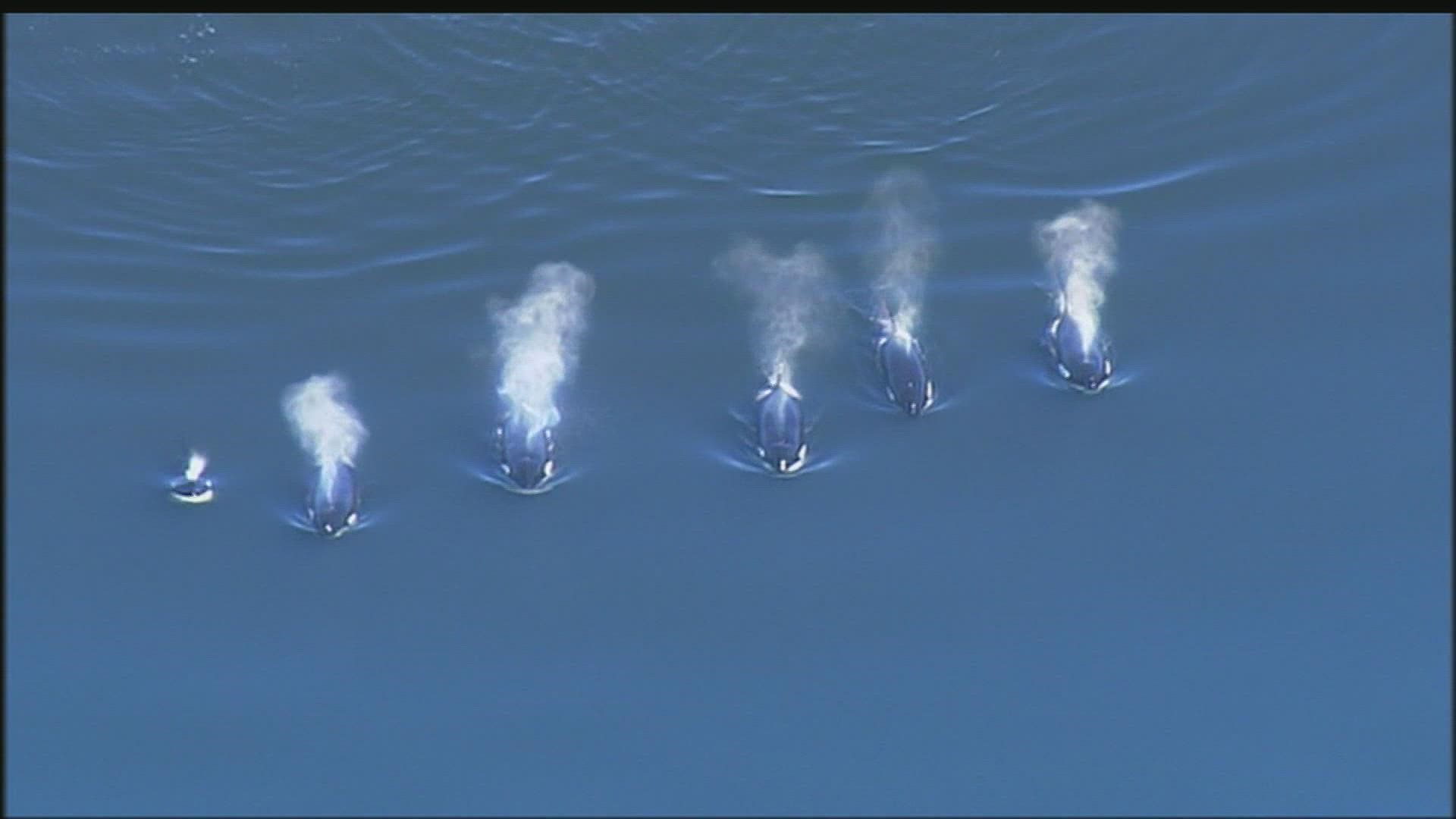SEATTLE — Editor's note: The above video was published on Dec. 7, 2022.
The declining Southern Resident orca population may be linked to how they hunt, according to a new study.
Scientists at the University of Washington and NOAA Fisheries found that while Southern Resident orcas are struggling to survive, the Northern Resident orca population is steadily growing. There are 73 known Southern Residents and more than 300 Northern Residents, according to the study.
Southern and Northern Resident orcas, which both spend at least part of their time in the waters off Washington state and British Columbia, have a similar diet primarily consisting of salmon. However, females in Northern pods hunt and capture more than males -- opposite of Southern pods.
"... For Southern Resident orcas, we found the opposite: The males were doing more hunting and capturing than females,” said the study's lead author Jennifer Tennessen, a senior research scientist at the University of Washington’s Center for Ecosystem Sentinels. “We also found that if their mother was alive, Northern Resident adult males hunted less, which is consistent with previous work, but we were surprised to see that Southern Resident adult males hunted more. Adult females in both populations hunted less if they had a calf, but the effect was strongest for Southern Residents.”
According to the study, which includes five years of data, Southern Resident males catch 152% more salmon per hour than females. So, for every two fish a female catches a male catches five. Meanwhile, Northern Resident females catch 55% more salmon per hour than males.
Both orca populations use echolocation to hunt. They travel between major rivers and stream outflows. They have been impacted by reduced salmon runs caused by dams and vessel traffic and noise, according to researchers.
The new study, which tracked a total of 57 orcas between 2009 and 2014, showed Southern orcas had fewer successful hunts overall. That, according to researchers is evident with young mothers.
“In both populations, a mother with a young calf foraged less than other females, possibly due to the risk of leaving the calf temporarily with ‘a babysitter’ — another adult — while she hunts, or because of the time demands of nursing a calf,” said Tennessen. “But for Southern Resident females, which are more prone to disturbance and stress from vessel traffic, there was an outsized effect: Our study found no instance of a southern resident female with a young calf who successfully carried out a hunt.”
The hunting study follows another released in February that found male offspring "impose biologically significant reproductive costs" on female Southern Resident orcas. Producing a male offspring reduces a mother orca's annual breeding success by about 50%, according to the study by Center for Whale Research.
Southern Resident orcas are considered endangered. A census in September recorded the Southern Resident population at just 73, and over the summer 12 Southern Resident orcas were designated as vulnerable due to their body condition.

